APPLY FOR ADMISSION
FIRST YEAR MEISNER ACTING PROGRAM

BEGINS
SEPTEMBER 10TH

Call To Schedule an Interview
(917) 794-3878
The Sanford Meisner Technique: Training Authentic Performances
Developed by Sanford Meisner, the Meisner Technique focuses on the vital role of emotional depth, improvisation, and “doing truthfully under imaginary circumstances” in creating genuine performances.
By leveraging elements like repetition exercises and emotional preparation, this method empowers you to fully engage with your character.
As a result, you create performances that captivate and resonate deeply with audiences.
Key Takeaways
- Hone your acting skills through the Meisner Technique’s emotional preparation, repetition exercises, and improvisation.
- Actors like Mike Colter and Piper Parabo attribute their success to this technique.
- Consider dedicated NYC acting programs at institutions like Maggie Flanigan Studio for in-depth training.
Understanding the Meisner Technique
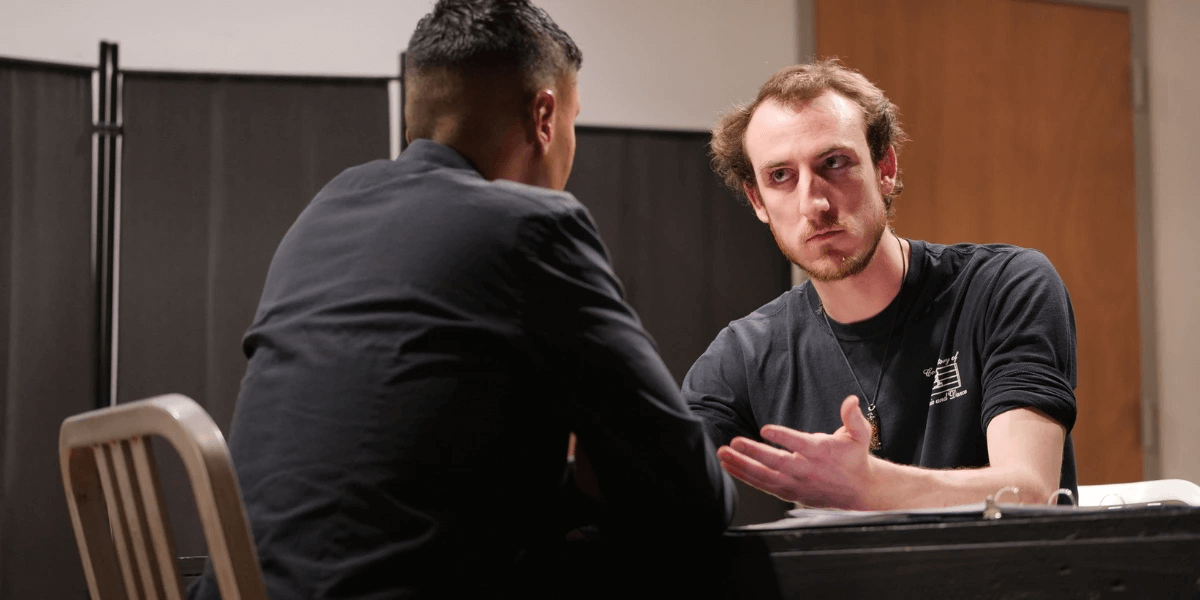
Originating from the esteemed Sanford Meisner of The Group Theater, the Meisner Technique is a comprehensive approach to acting that emphasizes truthful performances. It cultivates an actor’s ability to engage authentically with the imaginary circumstances of a scene by instilling fundamental craft and process in the actor.
Meisner’s technique encourages you to stay present and responsive to your scene partners. The use of repetition exercises strengthens this focus, training actors to be acutely aware and malleable to subtext, thereby enabling spontaneous and authentic human behavior.
The origins of the Meisner Technique
In the 1930s, Sanford Meisner, alongside other influential figures like Stella Adler, introduced the Meisner Technique as a response to Lee Strasberg and the New York-based Group Theater’s method acting classes. Meisner’s approach was an alternative rooted in the imagination as opposed to literal past experiences and trauma.
Meisner’s innovative technique shifted the emphasis from emotional recollection towards imagination and concentrated, empathic listening between actors. His work was groundbreaking, aiming to create an acting process that has the capacity to consistently produce organic, vivid, fully realized human behavior.
Today, the technique has a global following and is used in various capacities in acting programs and drama schools throughout the world.
Foundational Principles of the Meisner Technique
The Meisner Technique rests on three key pillars: emotional preparation, repetition exercises, and improvisation. Unlike The Method, which depends on sense memory, Meisner focuses on the imagination for generating authentic emotions.
The repetition exercise, the core component of the training, immediately challenges the actor to get out of their head, connected to the other person, on their spontaneous impulses, fully present and authentic.
The technique prizes truth and spontaneity, equipping actors with the fundamental acting skills necessary to produce fully realized human behavior.
Emotional preparation: The Meisner way
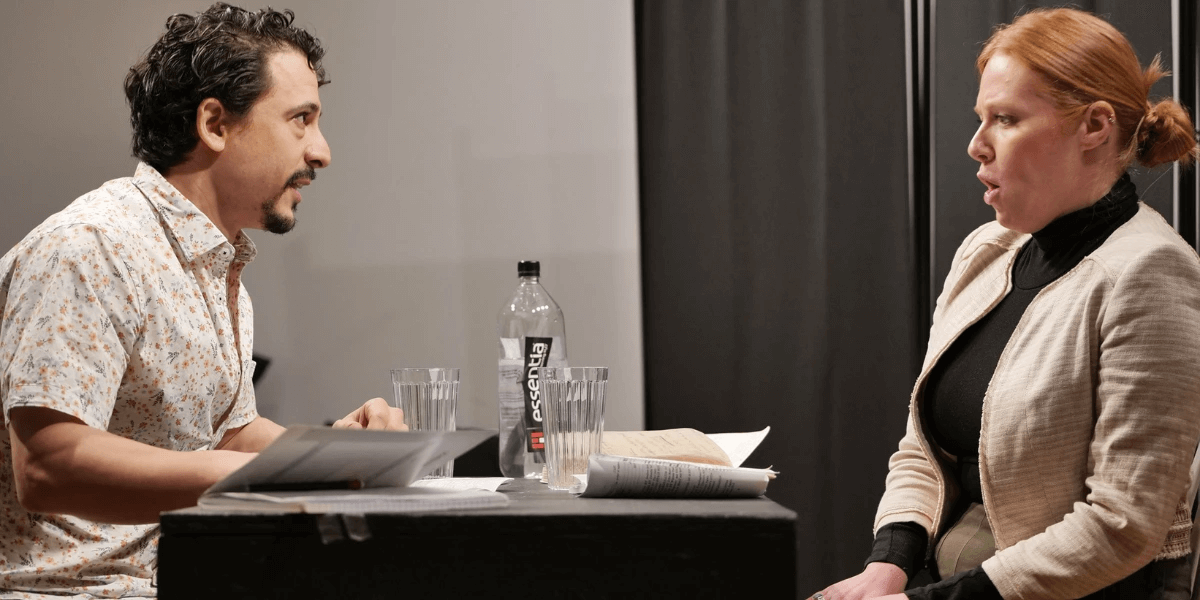
Emotional preparation in the Meisner Technique is about more than memory; it’s about engaging your imagination. Sanford Meisner encourages actors to tap into the power of daydreaming and fantasizing.
The technique embraces the principle that the human body doesn’t distinguish between real and imagined events when it comes to emotion. Harnessing the ability to daydream and fantasize to the actor’s process is developed in the early stages of Meisner training, where actors work out and develop their imagination, allowing for a very personal and experiential acting process.
By doing so, actors develop their vulnerability and empathy, honing their capacity to access the rich and profound gamut of human emotion.
Mastering Repetition Exercises
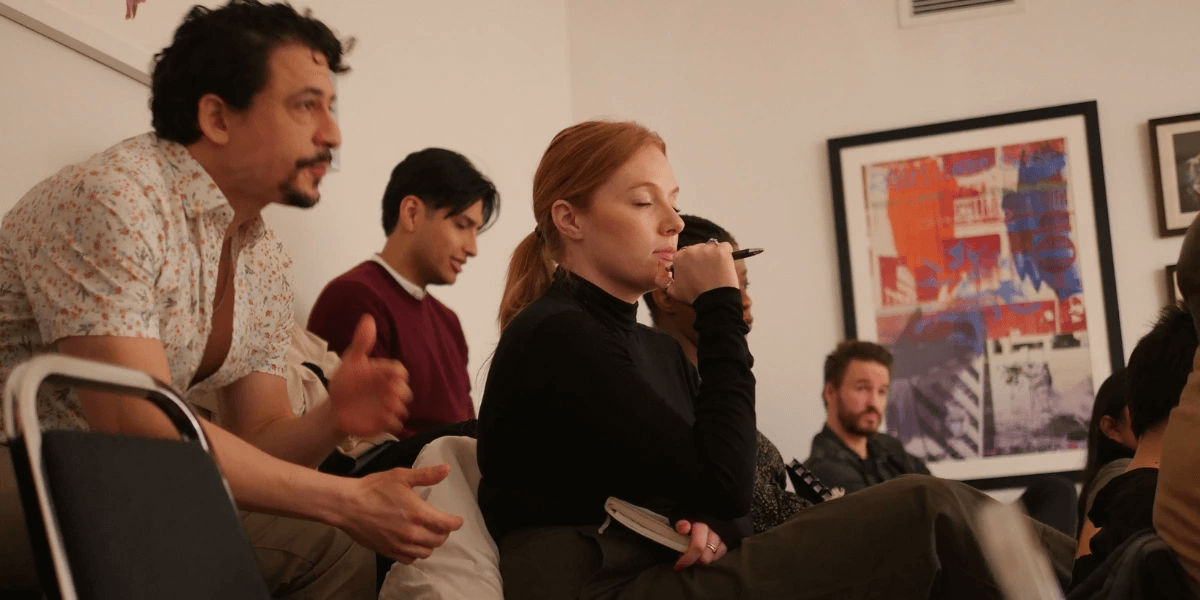
Repetition exercises are vital in Meisner training. These drills compel you to focus intently on your scene partner and respond authentically and spontaneously. The practice hones your ability to respond personally, fostering a deeper connection between performers while also making the performances vivid and compelling to watch.
The repetition exercise is the very first step in the Meisner progression. This brilliant exercise gets the actor out of their head, into their heart, with the attention off of themselves, fully present and engaged from moment to moment. Listening is the bedrock of acting, and this is the skill that separates the Meisner-trained actor from everyone else.
The Power of Improvisation
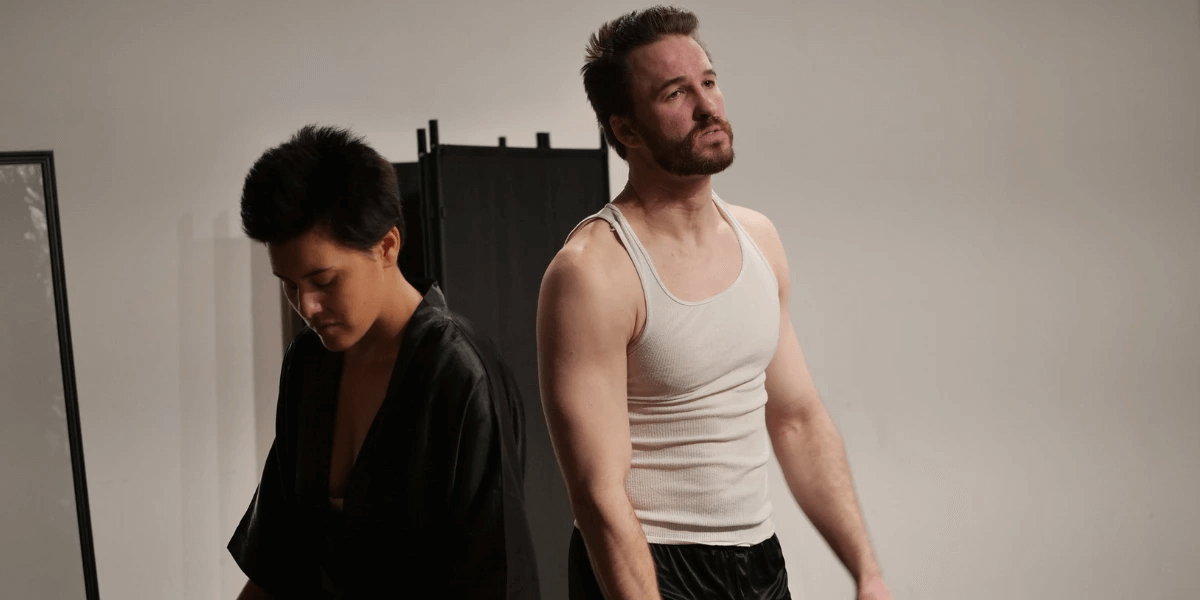
Improvisation is another cornerstone of the Meisner Technique. It serves as a vital tool for actors aiming for emotionally resonant and authentic performances.
Meisner’s improvisational exercises train the actor to craft in a simple, specific and personal way. General crafting will always produce actors who are general and uninteresting to watch. The more specific, vivid, and personal your crafting, the more vivid is the behavior you will produce.
Enhancing character development
The ability to act before you think is the key to spontaneity and authenticity. Talent and instincts will not surface if an actor is in their head, judging, editing, and watching themselves from a self-conscious place. Before an actor can begin to consider character psychology and development, the core acting fundamentals need to be second nature.
This focus on spontaneity is rooted in Meisner’s core principle that an actor comes to life through doing, listening, and taking personally what is being said to them. It’s about creating behavior and coming to a rich inner life, which adds depth and authenticity to performances.
The utilization of improvisation in the Meisner Technique is immensely relevant for character development. Through sophisticated, deeply profound improv exercises, actors are able to more fully illuminate the human condition. The best actors are acrobats of the human heart, and Meisner training makes this possible.
Successful Actors and the Meisner Technique

Notable actors like Sam Rockwell, Mike Colter and Diane Keaton have attributed their acting successes to the Meisner Technique. Their gripping performances in films such as “The Godfather” and “Annie Hall” stand as testimony to the effectiveness of Meisner’s approach.
This acting process equips actors with the capacity for consistency. Creating behavior is the actor’s job, and this needs to happen with every take on set, every rehearsal, self-tape, audition, and performance. Consistency is what any serious professional actor should possess.
Other famous Meisner actors
The Meisner Technique has been a transformative force in the acting world, shaping the careers of numerous celebrated performers. Among them are recently acclaimed actors who have left an indelible mark on both stage and screen.
Actors like Robert Duvall, Diane Keaton, Philip Seymour Hoffman, Jonathan Magors, Emma Stone and Timothée Chalamet have credited the Meisner Technique for their success.
Their compelling roles in iconic films demonstrate the technique’s effectiveness in fostering emotional depth and versatility.
Comedic talents like Tina Fey and versatile performers like Sandra Bullock also attest to the technique’s broad applicability across genres and roles.
Where to Study the Meisner Technique
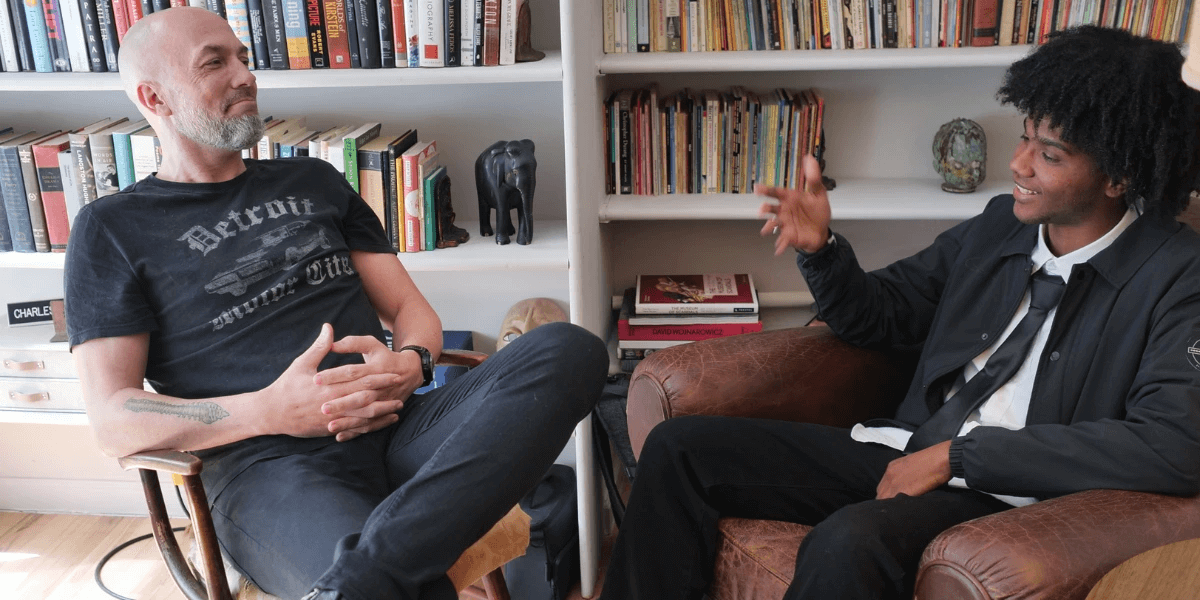
While there are online resources available for learning the Meisner Technique, they often lack the depth provided by a dedicated training program. Enrolling in an established acting school like Maggie Flanigan Studio can offer you an intensive, structured experience.
Such programs offer the critical benefit of live exercises and personalized feedback, providing an enriching environment conducive to mastering the complexities of the Meisner Technique.
Take the Stage with Mastery at Maggie Flanigan Studio
If you’re prepared to elevate your acting skills, the Meisner Technique offers a pathway to emotionally compelling performances. Maggie Flanigan Studio provides a comprehensive training program under the expert guidance of their Artistic Director and Master Teacher, Charlie Sandlan.
Don’t let this moment pass. Apply today and embark on a transformative acting journey.
Frequently Asked Questions
What are the main points of the Meisner technique?
The Meisner Technique is an approach that involves using improvisation, repetition, and emotional preparation to provide a process for consistently creating organic, vivid, fully realized human behavior on-camera and on-stage.
Every art form requires craft and technique, and acting is no different. Most actors have no process, no consistent way of working every time they get a script. The Meisner Technique provides the fundamental skill set needed to create behavior in the imaginary world. This is the actor’s job, and most actors indicate and perform, but a Meisner actor knows how to work in a vivid, deeply personal way.
What are examples of Meisner techniques?
The Meisner technique encourages actors to act before they think, instilling spontaneity, vulnerability, and emotional accessibility to their work.
This first year Meisner exercise gives performers a process for being fully present, in the moment, with the ability to craft simply, specifically and personally. This approach is grounded in truth and human condition, creating an actor who is spontaneous, emotionally alive, and malleable to the nuances of another person’s behavior.
What is the difference between Strasberg and Meisner?
The Meisner Technique focuses on the imagination, while Strasberg’s Method relies upon literal past experiences and trauma in accessing emotion.
How does the Meisner Technique differ from Method Acting?
The Meisner Technique is a way of acting that is more creative and imaginative than Method Acting, which focuses on accessing stored memories and triggering past trauma to produce emotion. Both methods are approaches towards performing, yet the emphasis in Meisner lies in the use of the imagination to create vivid behavior rather than one’s literal past.
Recent Post
STUDENT TESTIMONIALS
“I was placed in the intense reigns of Charlie Sandlan. I became a better artist, actor, friend, sibling and daughter because of the studio. Even now, I crave the studio every day. What I learned is present in my work every day. I truly believe in everything they stand for.”

“Maggie taught me that I could control my work, my acting, and to throw all of the bullshit out that I had in my head about ‘what I should be doing’ and to just listen and respond honestly, in the moment. She gave me a craft. She is, quite simply put, THE BEST.”
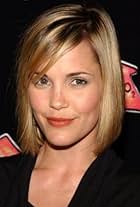
“Maggie Flanigan taught me the true meaning of artistry, passion, and professionalism. I am certain that I continue to work as an actress because of my training with Maggie. At every audition and every performance, her guiding voice is with me. It is a gift beyond measure.”

“Maggie Flanigan is uncompromising, her instincts as a teacher are razor sharp. She doesn’t miss a beat”

“Maggie Flanigan has been one of the most important people in my artistic life. I want to work with Maggie trained actors. As an actor myself, she is my first source. I do not say this lightly, if you are serious about acting, and willing to work very hard, then go to Maggie.”

“Maggie helped me find my sense of truth, an actors greatest asset. Maggie is an expert at instilling that vital ingredient, which allows an actor’s potential to become limitless. My work will forever be rooted in the clarity and honesty she helped me develop.”

“After working for ten years, I did the 2 year program, and now feel that I have the tools I need to become the actor I’ve always dreamed of being. Maggie Flanigan instilled in me a clear sense of truth and a standard of perfection. I am a better actor because of this studio.”

“As an actor, the core of what you have to rely on is your sense of truth and humanity. Maggie allowed me to discover and embrace mine. Trusting my sense of humanity and truth has given me the ability to take risks in my work and my career decisions.”

“Maggie Flanigan has the unique ability to get an actor to the essence of what is true in a moment. She creates a safe and caring environment in which to work.”

“Maggie Flanigan introduced me to my own spirit and my own sense of Truth. Her passion for teaching and ability to communicate are rare gifts to any actor looking for a technique to set his or her talent free. Maggie’s voice has been the one constant guide in my career.”




